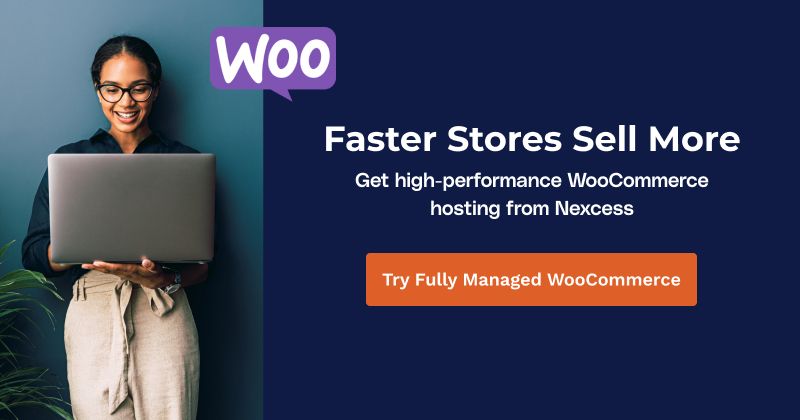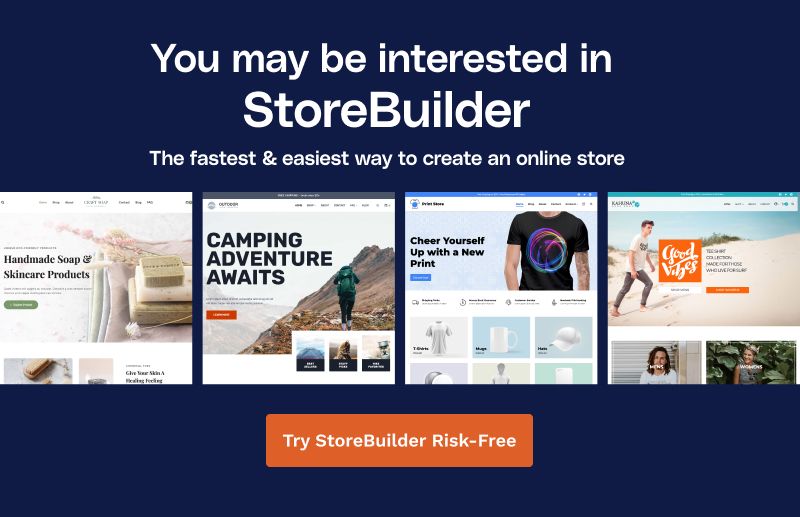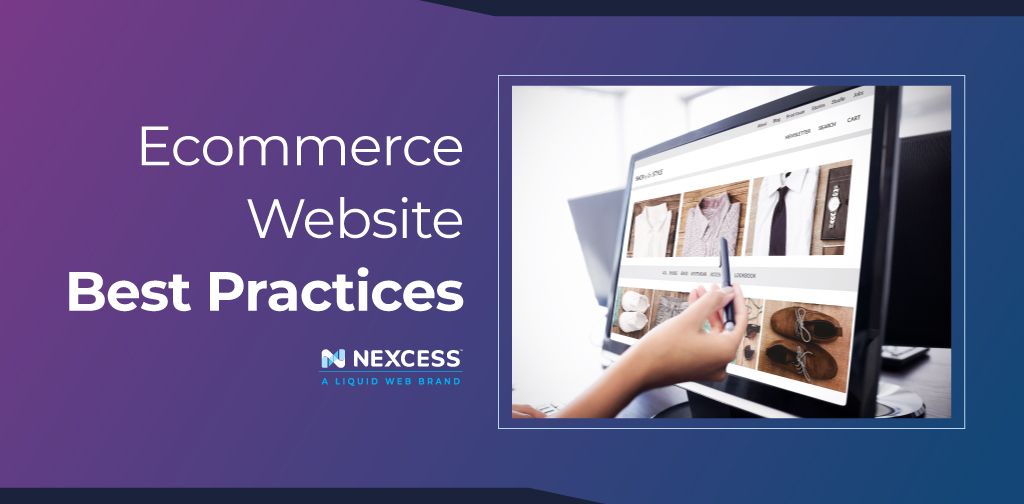Thinking about building an ecommerce website? If you want to learn how to make a website to sell stuff, whether that’s physical items or a service or even digital products, the good news is that ecommerce is growing exponentially.
Figure out which type of ecommerce business you want to launch, which products you want to sell, and then create an ecommerce business plan.
Once this groundwork has been established, it’s time to start thinking about your website. For ecommerce businesses, your website is highly important. It can make or break the success of your online store.
A good online store has all the right website components. Customers need you to go beyond the basics — they look for ecommerce website features like customer reviews, plenty of payment options, and detailed product information.
But we’re just scratching the surface. Keep reading to learn all the ecommerce website best practices you need to get your business off the ground.
Ecommerce Website Best Practices: Design
Not sure how to design a website? That’s okay. There are many website builders, like StoreBuilder, to help you figure it out — no coding required.
When you’re beginning to plan your website, you’ll want to think about how to make your ecommerce site stand out. After all, you’ll face some competition online from other ecommerce stores. Review ecommerce website examples to see what others are doing. You could also look at the top ecommerce sites for inspiration. See what they’re doing right, and emulate it.

Consider utilizing current website design trends for a modern look, while still adhering to time-tested website design tips. Of course, there are some key website design principles you’ll need to stick to — clear hierarchy and structure, strong visuals, and simple navigation.
If you want to opt for an even simpler design, you could consider creating a one page website — though this won’t be a good fit if you plan on offering many different products.
Homepages
Ecommerce website design doesn’t need to be complicated. A clear, simple site can be appealing to customers. Your homepage is the most critical page on your site and it should be the one you spend the most time crafting. It’s the first impression potential customers will have, so you want a strong homepage to convey your brand and your message. Check out these website homepage examples for some more inspiration.
Product Pages
Product pages need clear imagery and descriptions. Learn how to write a product description that both provides details for the customer and compels them to buy. As for the visuals, you don’t need a fancy camera — you can easily take amazing DIY product photography with a smartphone and good lighting.
Checkout Pages
When customers decide to make a purchase, provide them with online payment methods to choose from. Providing them with options can increase your sales and reduce shopping cart abandonment effects.
Ecommerce Website Best Practices: Testing
You’ll also want to test these functions to ensure your customers can actually check out — and that they don’t encounter the dreaded 404 page. Review our 404 page examples for ecommerce to get an idea of how to make the most of these pages.
Ecommerce testing is critical to providing a good user experience for customers, and keeping your sales soaring. Consider doing ecommerce user acceptance testing yourself — or find a host who does it for you. For example, Nexcess offers WooCommerce automated testing to detect issues with payment and checkout.
Ecommerce Website Best Practices: Marketing
You may be wondering how to drive traffic to your website. One way to do this is through search engine optimization (SEO). SEO for ecommerce websites helps your site show up when people Google terms related to your products. Research which keywords your target audience searches for on Google — then use them on your product descriptions and elsewhere on your site.
Adding Content to Your Site
You may want to consider adding a blog to your online store. This is another way to draw in traffic with SEO. Ecommerce content marketing allows you to go more in depth on your products, provide advice for using them best, and help convince customers to make the purchase. An ecommerce content strategy can set your store apart, and help you reach more customers.
Marketing Your Store
Ecommerce marketing can help your store reach a broader audience. Consider utilizing an omnichannel ecommerce marketing strategy, which works across different channels like social media, your website, email, and more.
Put in place an ecommerce growth strategy, which can help you establish yourself and grow your sales over time. When beginning to market your store, remember to track ecommerce KPIs — or key performance indicators. Things like average order value and ecommerce conversion rate can help you understand how your business is performing — and where you can make improvements.
By following these ecommerce best practices for marketing your store, you’ll draw in more visitors to your site, and convert more into customers too.

Ecommerce Best Practices: Security
An often overlooked aspect of ecommerce is site security. Ecommerce site security is extremely important for ecommerce sites, since they handle sensitive information from customers, such as payment information. Therefore, it is critical to know how to make your website secure.
Ecommerce security can also impact your sales, since customers may be hesitant to make a purchase if they suspect your website may be unsafe.
Common website security threats that online store owners face today include phishing, ransomware, and cloud-based attacks that are caused by malicious code. To protect yourself and your customers, it is recommended that you always stay up to date on software updates. A reliable web host will also provide added security, like 24/7 monitoring, SSL certificates, and backups.
Implement These Ecommerce Website Best Practices
Now you’re armed with the top ecommerce website best practices to keep your site safe and increase sales.
Nexcess can help you achieve your ecommerce goals — whether you already have a store or you’re just getting started.
Fully managed WooCommerce hosting from Nexcess keeps your site safe with automatic updates and backups, an ultrafast CDN, and maintaining compliance and certificates. Your site will be fast, secure, and hassle-free with Nexcess.
Or, check out our website builder Storebuilder to create a new online store. It’s fast — custom integrations get your online store up and running in just a few clicks. Try StoreBuilder today.

